The –est
-
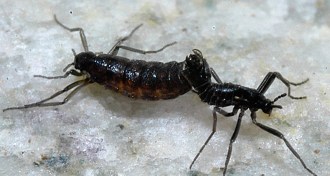 Animals
AnimalsAntarctic midge sports tiniest insect genome
Antarctic midge‘s genetic minimalism achieved by skipping a lot of repetitive stretches.
By Susan Milius -
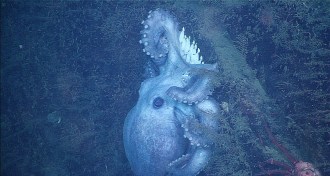 Animals
Animals‘Octomom’ sets egg-brooding record
The deep ocean reveals a new record as an octopus mom broods the same clutch of eggs for almost 4.5 years.
-
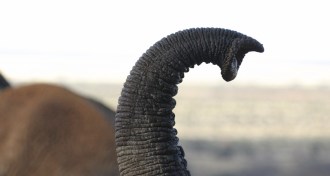 Animals
AnimalsElephant’s big nose wins most sensitive sniffer
A genetic survey reveals that African elephants harbor more smell sensors than any other known animal.
By Nsikan Akpan -
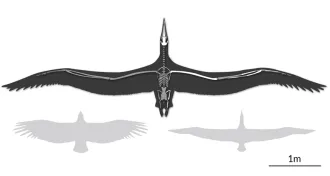 Paleontology
PaleontologyFossils reveal largest airborne bird
Despite its massive size, an extinct bird may have been an efficient glider.
-
 Life
LifeCalifornia mite becomes fastest land animal
Despite being the size of a sesame seed, the Paratarsotomus macropalpis mite can outpace Usain Bolt and even a cheetah in terms of body lengths per second.
-
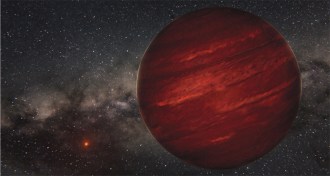 Astronomy
AstronomyYoung, hot exoplanet takes title for longest year
Newly discovered exoplanet sits a whopping 2,000 times farther from its star than Earth does from the sun.
-
 Paleontology
PaleontologyLoblolly sets record for biggest genome
At 20 billion base pairs, the loblolly pine is the largest genome sequenced to date.
-
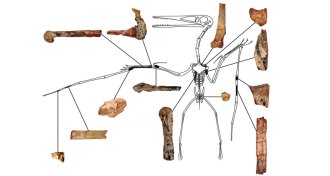 Paleontology
Paleontology‘Hidden dragon’ fossil is oldest flying reptile
Researchers have unearthed the oldest pterodactyl ever discovered: Kptodrakon progenitor soared over the Earth 163 million years ago.
By Meghan Rosen -
 Physics
PhysicsLaser kicks molecules into fastest ever spin
The powerful kick of a laser has spun molecules faster than they’ve ever been spun before: 10 trillion rotations per second, or 600 trillion RPM.
By Andrew Grant -
 Paleontology
PaleontologyOldest bug bonk
Preserved as fossils, two insects remain caught in the act 165 million years later.
-
 Physics
PhysicsOldest pitch-drop experiment
The allure of pitch — a black tarlike hydro-carbon by-product of distilling petroleum, wood or coal — comes from its split personality: It shatters from a quick hit with a hammer, but flows if set aside for long periods.
By Andrew Grant -
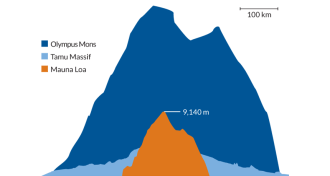 Earth
EarthBiggest volcano hulks deep
Tamu Massif forms a broad, rounded dome rising about 4 kilometers from the seafloor and stretching 450 by 650 kilometers across.